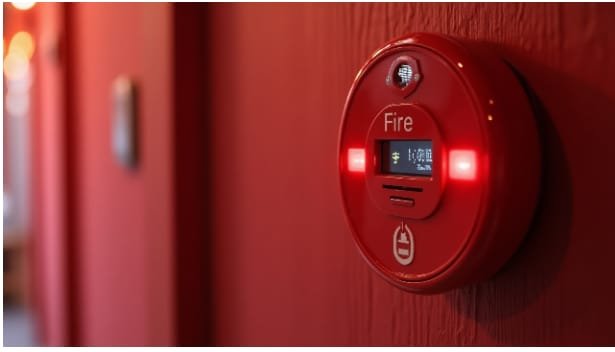
Fire safety is a fundamental responsibility for every homeowner. In a densely populated city like London, understanding and complying with fire alarm regulations is not just about protecting your property—it’s about saving lives. From mandatory alarm types to installation locations and maintenance duties, the fire alarm regulations in London are extensive and often misunderstood.
This guide covers everything London homeowners need to know to remain compliant, safe, and confident in their fire safety systems.
1. Why Fire Alarm Regulations Matter in London
With a mix of historic buildings, high-rise flats, and modern homes, London presents unique fire risks. The London Fire Brigade (LFB) responds to thousands of domestic fire incidents each year, many of which could be prevented or mitigated by proper alarm systems.
Key reasons these regulations exist:
- To ensure early warning of fires
- To facilitate safe evacuation
- To comply with insurance requirements
- To protect neighbours in terraced and semi-detached properties
2. Legal Fire Alarm Requirements for London Homes
Depending on your property type and occupancy status, fire alarm requirements can vary. Here’s a simplified breakdown:
For Owner-Occupied Homes:
- At least one smoke alarm per floor (usually on the ceiling in hallways or landings)
- Heat alarms in kitchens, instead of smoke alarms, to avoid false alerts
- Alarms must be interlinked (if one sounds, they all sound) in newer homes or major renovations post-2022
For Rented Properties (as per The Smoke and Carbon Monoxide Alarm Regulations 2015, updated in 2022):
- One smoke alarm on each floor of the living accommodation
- A carbon monoxide alarm in rooms with a solid fuel-burning appliance
- Landlords must ensure alarms are working at the start of each tenancy
3. Approved Alarm Types for London Homes
Homeowners can choose between:
- Battery-powered alarms (easy to install but require frequent checks)
- Mains-powered alarms with backup batteries (more reliable and recommended)
- Smart fire alarms (integrated with mobile alerts and often include carbon monoxide detection)
For many, a modern home is a smart home, and these systems are managed through devices we use every day. If you use Apple products, you can find many tips and tricks for integrating your smart home devices with Apple’s HomeKit, which helps you stay connected to your home’s safety systems.
4. Installation Best Practices: Where and How to Install Fire Alarms

Correct placement is critical to ensure optimal fire detection and minimum false alarms. Here are the best practices recommended by the LFB:
- Smoke alarms: On ceilings in hallways, landings, and living rooms
- Heat alarms: In kitchens, placed away from cookers
- Avoid bathrooms for smoke alarms (moisture causes false alarms)
- Avoid corners or locations near vents and fans
Alarms should be tested monthly and replaced every 10 years, even if still functional.
5. Maintenance Duties: Homeowners vs. Landlords
For Homeowners:
- Regularly test all alarms
- Replace batteries or units when necessary
- Clean alarms to prevent dust interference
For Landlords:
- Install alarms before a tenant moves in
- Respond to tenant reports of non-working alarms
- Maintain compliance across multiple units in HMOs (Houses in Multiple Occupation)
An integrated approach to safety can help. If you’re already managing other components—like access control or intercom systems.
6. Penalties for Non-Compliance
Failure to follow fire alarm regulations can lead to:
- Fines up to £5,000
- Tenant complaints and legal action
- Loss of property insurance validity
- Increased fire risk, injury, or death
During inspections, local councils or fire safety officers may also issue Improvement Notices that must be addressed immediately.
7. Upgrades and Modernization: Staying Ahead of Future Regulations
Fire safety laws are evolving. As of 2022, interlinked alarms became mandatory in Scotland, and similar legislation is being considered in other parts of the UK. London homeowners should prepare by:
- Installing interlinked systems (wireless or hardwired)
- Considering smart detection systems integrated with mobile apps
- Syncing fire alarms with security systems, especially during home automation upgrades
The use of modern technology is no longer limited to home security. Within the same tech ecosystem, you can also explore the benefits of health monitoring with an Apple Watch versus medical devices, which can be useful for larger homes and frequent travelers.
Conclusion
Fire alarm regulations in London are more than just legal obligations—they are essential to protecting your household and community. By understanding the rules, choosing the right systems, and maintaining them regularly, you’ll not only avoid penalties but ensure peace of mind.
Stay ahead of fire risks, stay compliant, and never underestimate the power of a working alarm.





